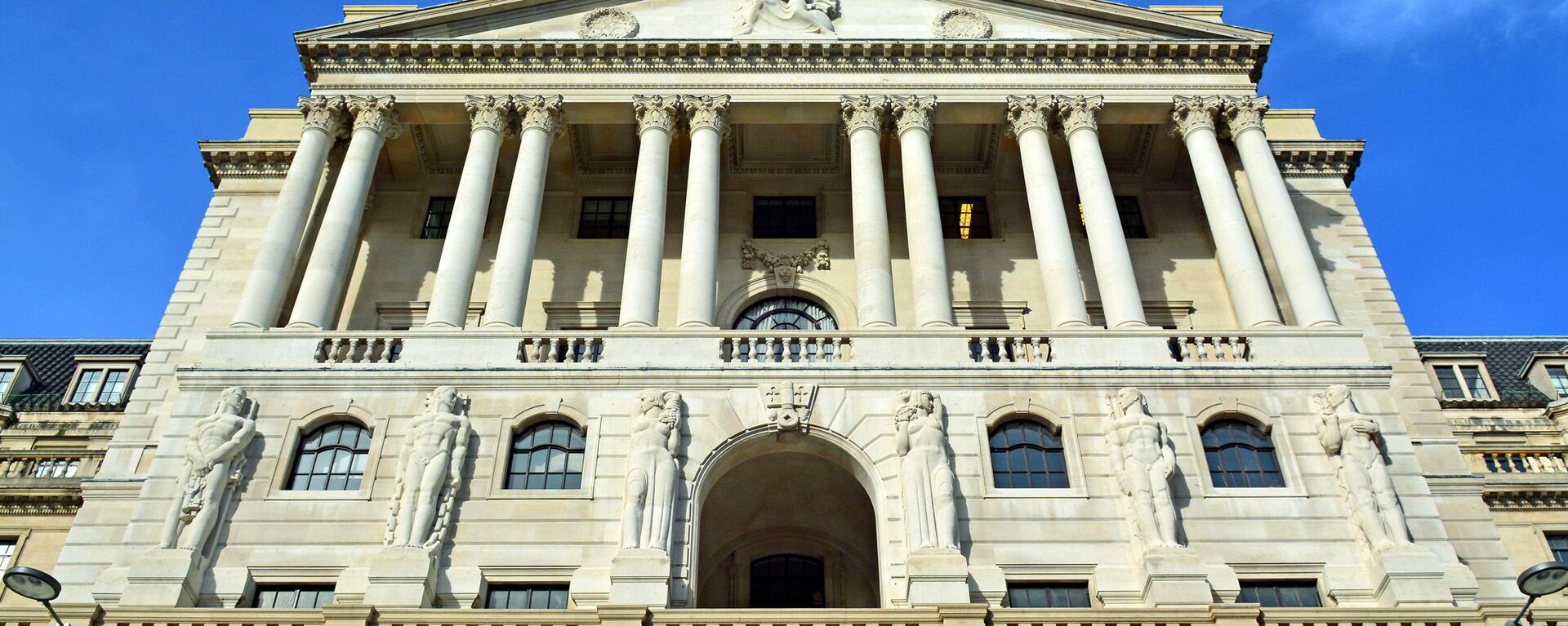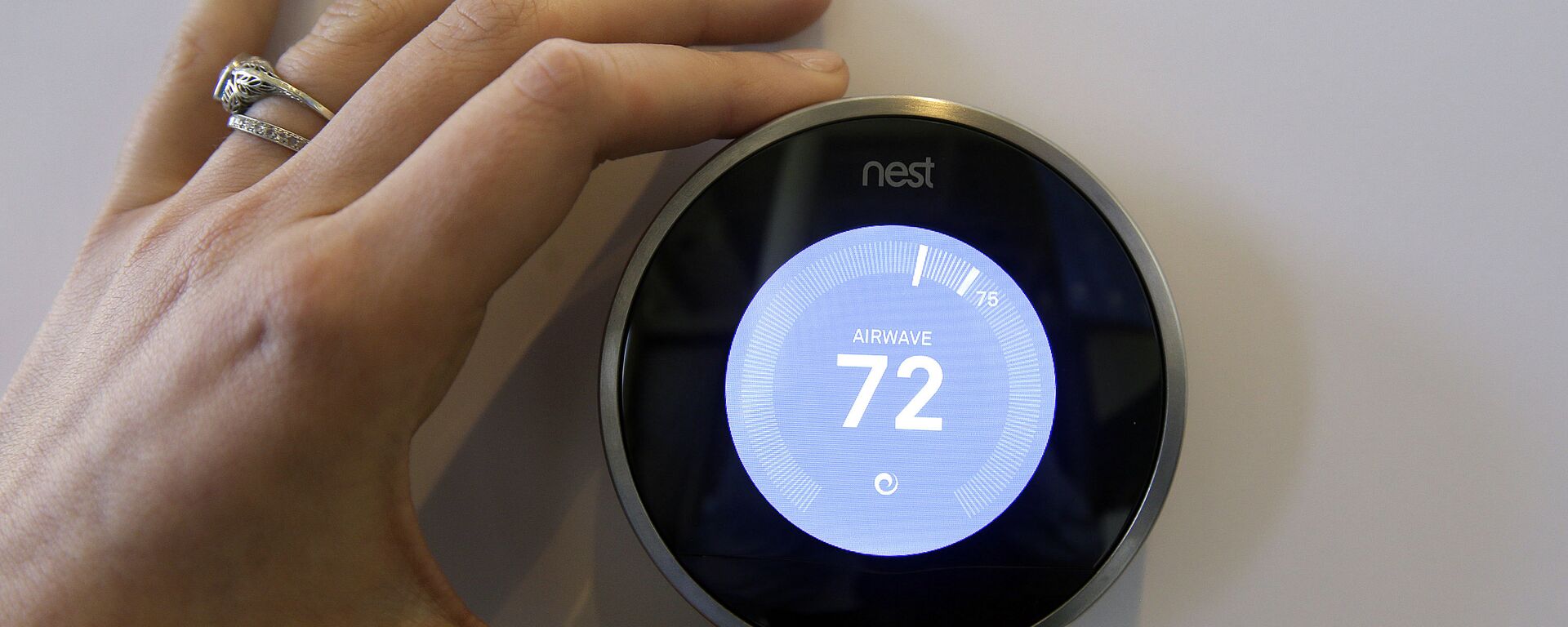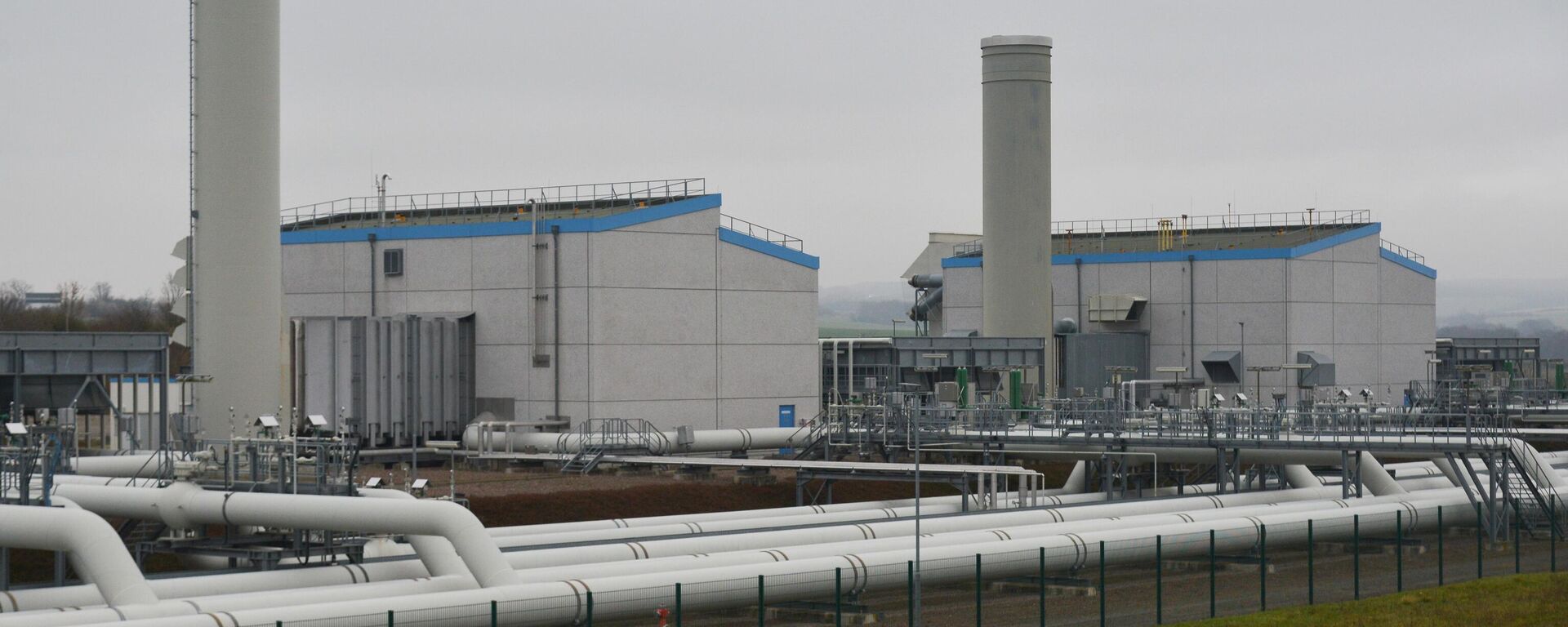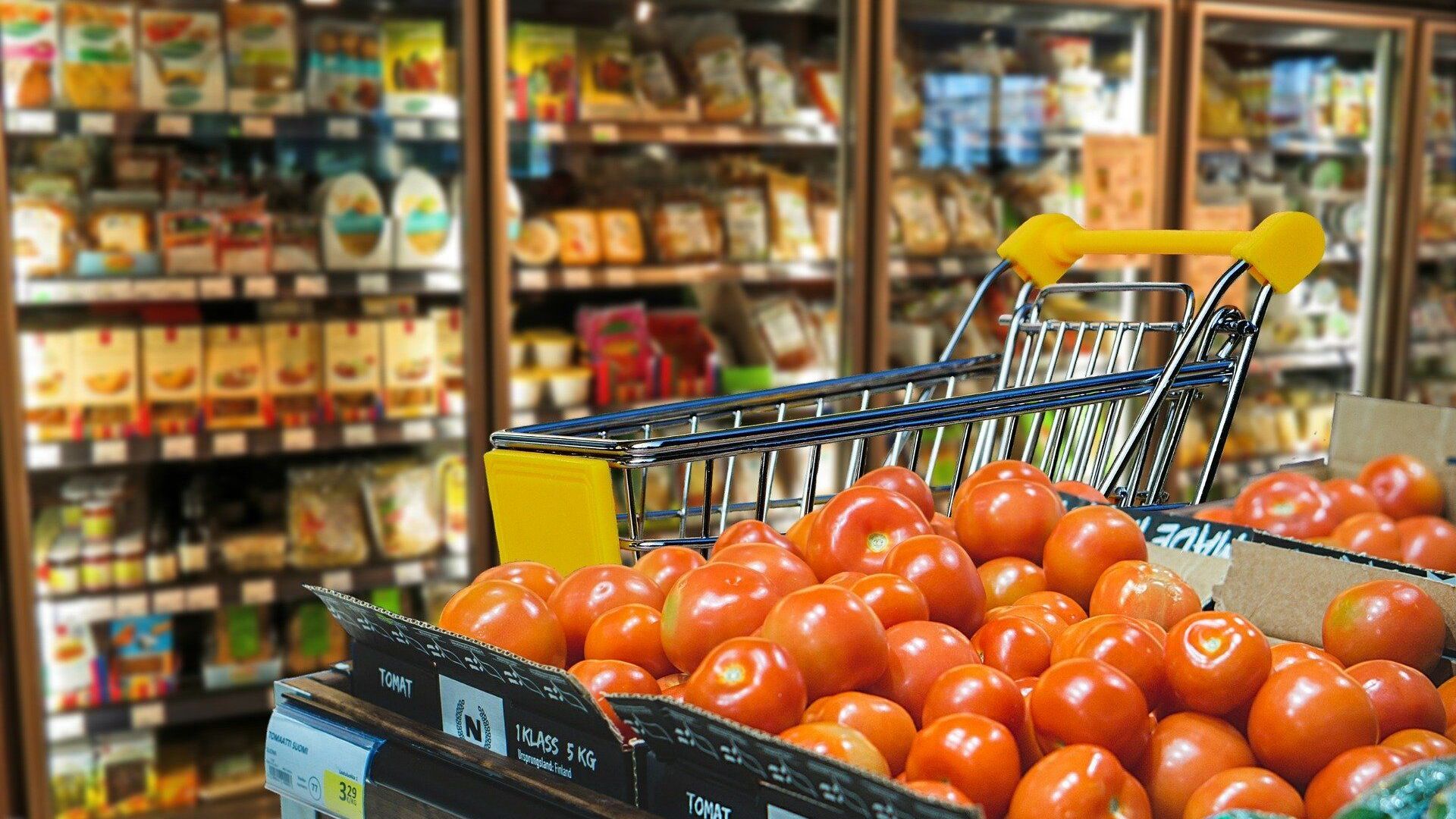https://sputnikglobe.com/20220923/germans-urged-to-prepare-for-empty-fridges-as-energy-crunch-takes-bite-out-of-food-security-1101144016.html
Germans Urged to Prepare for Empty Fridges as Energy Crunch Takes Bite Out of Food Security
Germans Urged to Prepare for Empty Fridges as Energy Crunch Takes Bite Out of Food Security
Sputnik International
The traditional Central European industrial powerhouse has been hit hard by the largely self-inflicted energy crisis stemming from Brussels’ decision to phase... 23.09.2022, Sputnik International
2022-09-23T14:44+0000
2022-09-23T14:44+0000
2022-09-23T14:44+0000
energy crisis in europe
food
germany
energy
frozen
https://cdn1.img.sputnikglobe.com/img/107749/69/1077496981_0:12:1920:1092_1920x0_80_0_0_f2c315272a9fdb51a553009551637b5c.jpg
Germany’s fresh and frozen food sectors are in the middle of their “worst crisis since the end of the Second World War” and could face a wave of bankruptcies and production restrictions, leading to gaps on store shelves, manufacturers associations have warned in an open letter to the German government.The appeal was penned by the German Frozen Food Institute, the Association of German Cold Stores and Cold Logistics Companies, with five other industry groups including the Meat Industry Association, the Federal Fish Association and the German Fruit Trade Association.“Companies fear that production lines will soon come to a standstill and that refrigerated logistics centers for food distribution will close. Some are even preparing for possible bankruptcy,” the letter said, characterizing the precarious situation as “one minute to midnight.”Energy price shocks have hit Germany’s frozen foods and fresh produce sectors especially hard, with producers complaining that they have received no financial support from the government amid the crisis.The letter also warned that other problems were eating away at food producers’ collective bottom lines, ranging from staff and raw materials shortages to supply chain disruptions. “Companies can no longer compensate for these massive cost increases through savings or by passing on [costs] to consumers,” the appeal said.Dr. Sabine Eichner, managing director of the German Frozen Food Institute, told Welt that the collective letter was created after weeks of silence to separate appeals by individual industry groups from the Ministry of Food and Agriculture.“Minister Ozdemir apparently accepts that companies will go bankrupt,” Eichner complained, saying that the need for support is “great, but nobody listens to us.”Germany’s food industry accounts for €186 billion in annual revenue, 6,200 separate companies and 638,000 employees, and has sought both “extensive” targeted financial for individual firms and expanded access to energy at subsidized flat rates.Energy Price/Inflation Twin BlowGermany and other European countries are bracing for a cold winter, compounding economic problems caused by the energy price hike and inflation crunch, and potential political turmoil amid rising public anger. Earlier this month, German natural gas and electricity powerhouse Uniper warned that the “worst is still to come” as far as the energy emergency was concerned.Germans have already been asked to make sacrifices at the grocery store, at the petrol pump, in their homes and in terms of personal hygiene for the sake of their government’s ongoing economic hybrid war with Russia. On Thursday, the Financial Times reported that German toilet paper makers are at risk of insolvency. Last week, rising gas prices forced German beer breweries to cut down on the production.A survey by the Institute for New Social Answers (INSA) for the Bild newspaper in June found that nearly one in six Germans have been skipping meals to make ends meet, with 13 percent more at risk by price hikes.President Vladimir Putin addressed the European energy crisis in comments to press in Vladivostok earlier this month, stressing that Russia would be prepared to turn on the Nord Stream 1 and 2 pipelines “tomorrow” if Western countries and their allies dropped sanctions and other restrictions.“[The West] put themselves in a so-called sanctions dead end. There is only one way out. We are seeing demonstrations in Germany demanding that Nord Stream 2 be turned on. We support these demands of German energy consumers. We’re ready to do so tomorrow. It’s enough to simply press a button. But we aren’t the ones who placed sanctions on Nord Stream 2. [Europe] did so under US pressure. And why are the Americans pressuring the Europeans? Because they themselves want to sell them gas for three times the price,” Putin said.
https://sputnikglobe.com/20220923/uk-may-be-in-recession-says-boe-as-it-warns-support-package-risks-adding-to-inflationary-pressure-1101113153.html
https://sputnikglobe.com/20220907/worst-of-energy-crisis-still-to-come-german-gas-giant-uniper-warns-1100505719.html
https://sputnikglobe.com/20220911/thousands-of-germans-rally-against-freezing-for-profits-in-thuringia-1100659286.html
germany
Sputnik International
feedback@sputniknews.com
+74956456601
MIA „Rosiya Segodnya“
2022
News
en_EN
Sputnik International
feedback@sputniknews.com
+74956456601
MIA „Rosiya Segodnya“
Sputnik International
feedback@sputniknews.com
+74956456601
MIA „Rosiya Segodnya“
food, germany, energy, frozen
food, germany, energy, frozen
Germans Urged to Prepare for Empty Fridges as Energy Crunch Takes Bite Out of Food Security
The traditional Central European industrial powerhouse has been hit hard by the largely self-inflicted energy crisis stemming from Brussels’ decision to phase out Russian oil and gas to “punish” Moscow for its military operation in Ukraine. President Putin has warned that Europe is “in no position to dictate” its “will” to Russia on energy matters.
Germany’s fresh and frozen food sectors are in the middle of their “worst crisis since the end of the Second World War” and could face a wave of bankruptcies and production restrictions, leading to gaps on store shelves, manufacturers associations have warned in an open letter to the German government.
“There is a significant risk of gaps in the daily food supply for people in Germany. The situation is more than serious,” the letter, addressed to Chancellor Olaf Scholz, Economy Minister Robert Habeck and Federal Minister for Food and Agriculture Cem Ozdemir and
published by Welt, warned.
The appeal was penned by the German Frozen Food Institute, the Association of German Cold Stores and Cold Logistics Companies, with five other industry groups including the Meat Industry Association, the Federal Fish Association and the German Fruit Trade Association.
“Companies fear that production lines will soon come to a standstill and that refrigerated logistics centers for food distribution will close. Some are even preparing for possible bankruptcy,” the letter said, characterizing the precarious situation as “one minute to midnight.”
“Act now. Otherwise the refrigerators of Germans will soon be empty,” the appeal warned.
Energy price shocks have hit Germany’s frozen foods and fresh produce sectors especially hard, with producers complaining that they have received no financial support from the government amid the crisis.

23 September 2022, 05:51 GMT
The letter also warned that other problems were eating away at food producers’ collective bottom lines, ranging from staff and raw materials shortages to supply chain disruptions. “Companies can no longer compensate for these massive cost increases through savings or by passing on [costs] to consumers,” the appeal said.
Dr. Sabine Eichner, managing director of the German Frozen Food Institute, told Welt that the collective letter was created after weeks of silence to separate appeals by individual industry groups from the Ministry of Food and Agriculture.
“Minister Ozdemir apparently accepts that companies will go bankrupt,” Eichner complained, saying that the need for support is “great, but nobody listens to us.”
Germany’s food industry accounts for €186 billion in annual revenue, 6,200 separate companies and 638,000 employees, and has sought both “extensive” targeted financial for individual firms and expanded access to energy at subsidized flat rates.
Energy Price/Inflation Twin Blow
Germany and other European countries are bracing for a cold winter, compounding economic problems caused by the energy price hike and inflation crunch, and potential political turmoil amid rising public anger. Earlier this month, German natural gas and electricity powerhouse Uniper warned that the “worst is still to come” as far as the energy emergency was concerned.

7 September 2022, 13:44 GMT
Germans have already been asked to make sacrifices at the grocery store, at the petrol pump, in their homes and in terms of personal hygiene for the sake of their government’s ongoing economic hybrid war with Russia. On Thursday, the Financial Times
reported that German toilet paper makers are at risk of insolvency. Last week, rising gas prices forced German beer breweries
to cut down on the production.
A survey by the Institute for New Social Answers (INSA) for the Bild newspaper in June
found that nearly one in six Germans have been skipping meals to make ends meet, with 13 percent more at risk by price hikes.
President Vladimir Putin addressed the European energy crisis in comments to press in Vladivostok earlier this month, stressing that Russia would be prepared to turn on the Nord Stream 1 and 2 pipelines “tomorrow” if Western countries and their allies dropped sanctions and other restrictions.
“[The West] put themselves in a so-called sanctions dead end. There is only one way out. We are seeing demonstrations in Germany demanding that Nord Stream 2 be turned on. We support these demands of German energy consumers. We’re ready to do so tomorrow. It’s enough to simply press a button. But we aren’t the ones who placed sanctions on Nord Stream 2. [Europe] did so under US pressure. And why are the Americans pressuring the Europeans? Because they themselves want to sell them gas for three times the price,” Putin
said.

11 September 2022, 18:48 GMT







